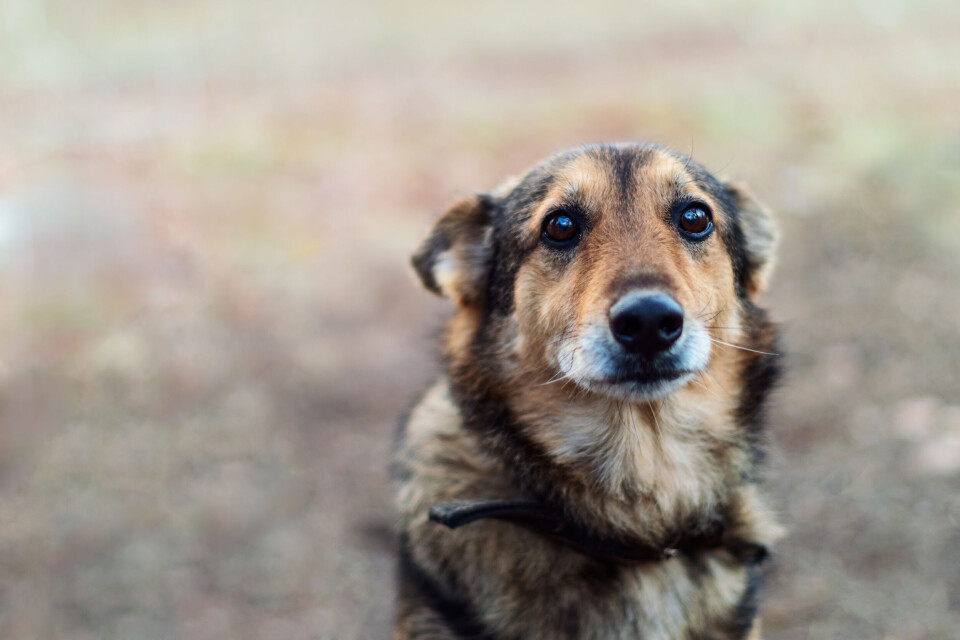-
Residency rights and border changes: What's new and changing in France in 2026
Including the EU’s launch of travel authorisation scheme ETIAS and the continued ‘phase in’ of its digital borders system, EES
-
New rules aim to stop ‘spoofing’ calls in France: what are these?
Calls from French numbers abroad will need to be verified or show as ‘hidden number’, with residents urged to be vigilant about answering
-
Ryanair confirms routes to Dole-Jura airport maintained in summer 2026
Airline previously said that more routes to France will be axed next year
France’s new animal welfare law passes: What will it change for pets?
New pet owners will have to sign a certificate confirming they understand the responsibilities involved plus there will be harsher punishments for abandonment and cruelty

The French Senate has voted almost unanimously to adopt a new animal welfare law, with proposed rules including the need for new pet owners to sign a certificate.
The law will also introduce a gradual ban on the use of animals in circuses and in dolphinariums, and a ban on the sale of cats and dogs on classified ad websites and in pet shops.
The Assemblée nationale passed the bill almost unanimously on Tuesday before passing it to the Senate for approval yesterday (November 18).
It passed with 332 votes in favour, one against, and 10 abstentions.
It comes after Agriculture Minister Julien Denormandie stated that pets should be seen as “neither toys nor consumable goods”.
The law states that its aim is to fight against animal malpractice and includes measures such as:
-
A gradual ban on the use of animals in circuses and in dolphinariums
-
A ban on the sale of cats and dogs on classified ad websites and from pet farms
-
The requirement for new pet owners to sign a certificate confirming their understanding of the responsibilities and costs involved
-
Harsher penalties for animal abandonment
-
Closure of the last mink farms in France
MP and vet Loïc Dombreval (LREM) said the law would mean France would “catch up” with its European neighbours on animal legislation. The law also has the support of numerous animal charities.
Although figures show that half of people in France own at least one pet – including 11 million cats, 9 million dogs and 1 million horses – there are still more than 100,000 abandoned animals every year.
We look at the new law in more detail, including rules that will apply to you if you are looking to buy a pet in future.
New pet owners will need to sign a certificate
The law states: "Any person selling a pet animal or giving one away free of charge shall ensure" that the purchaser signs a "certificate of commitment and knowledge of the specific needs of the species".
The precise content of this certificate will be defined by decree.
The aim is to fight abandonment by providing better information on the needs and costs (food, veterinary costs, education, etc.) associated with owning a dog, cat or horse; and in doing so, reduce impulse buys.
Parental consent will be required for any pet purchase by a minor.
No more cats and dogs in pet shops
From 2024, pet shops will no longer be allowed to sell cats or dogs. They will only be allowed to display abandoned cats and dogs that are available to rehome via official associations.
The display of animals in pet shops visible from a public road will no longer be permitted.
Selling pets online will also be forbidden, except for genuine breeders, in specific online sections. Platforms that do not implement a system of prior checks will risk a fine of up to €7,500.
It will also be forbidden to send live vertebrate animals by post.
Harsher penalties for mistreatment and abandonment
The law stipulates up to five years imprisonment and a €75,000 fine in the event of an animal's death caused by mistreatment.
Serious abuse, or of a sexual nature, or of committing an act of cruelty towards a domestic or tamed animal, will be punishable by three years imprisonment and a fine of €45,000 euros. The recording of images will also be punished.
Committing these acts in the presence of a minor, or being the owner or guardian of the animal, will be considered as aggravating circumstances.
In addition, there will also be a new range of penalties for "deliberate attacks on the life of an animal" and an aggravated penalty for abandonment where there is an immediate risk of death.
Gradual end to wild animals in travelling circuses and public shows
The acquisition and breeding of wild animals for public display in travelling circuses will be prohibited within two years.
The law also stipulates that it will be forbidden to keep wild animals as part of a travelling circus, within seven years.
This will concern 800 wild animals, including 450 big cats. Current owners will be offered alternative homing solutions for the animals. The bill will also ban the display and use of wild animals at private parties and discos.
The presentation of wild animals on television will be banned, except in zoos and farms. Bear and wolf trainers will also no longer be allowed to exhibit these species in travelling shows.
Within five years, the keeping and breeding of marine mammals in captivity will no longer be permitted, nor will their participation in shows.
There are currently 21 dolphins and four orcas in captivity in France, in the establishments Planète Sauvage and Marineland.
Pony rides will also be banned.
Closure of last mink farm in France
The last mink farm will be closed immediately.
The French fur association La Fédération française de la fourrure has denounced this as politically motivated, as one farm was forced to slaughter its mink after becoming affected by Covid-19 at the height of the crisis in 2020.
Despite the closure, the association claims that the remaining farm is "healthy and regularly monitored" and has called on le Conseil constitionnel to review the measure.
Related articles
Animal suffering becomes a key presidential election topic in France
Why French government agreement marks historic day for animal welfare
























